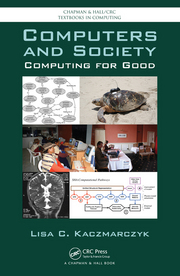
Course Number:
EST/ISE 339
Title:
"Benevolent Computing"
Credits: 3
Course Coordinator:
Tony Scarlatos
anthony.scarlatos@stonybrook.edu
Current Catalog Description:
"The purpose of this course is to explore the recent phenomenon of software applications that leverage social networks and mobile computing to solve local and global problems. The course will use case studies and journal papers to document the process of developing civically-oriented applications. Students will work in teams to identify campus causes (or off-campus non-profit organizations), and to design and develop a term project (mobile or web-based application) that will help those organizations achieve their goals."
Prerequisite:
CSE 214 or ISE 208, or permission of the instructor
Course goals:
• To know the origins of "computing for social good"
• To become familiar with open source software tools
• To learn the development process of civically-minded software
• To explore the diversity of application areas in benevolent computing
• To comprehend the synergy of social networks and mobile computing for social change
Textbook:

"Computers and Society: Computing for Good"
by Lisa C. Kaczmarczyk
CRC Press
ISBN 978-1-4398-1088-0
Major Topics Covered in Course:
• Microfinance and microphilanthropy
• Crowdsourcing and crowdfunding
• Citizen journalism and activism
• Serious games
• Medical, rehabilitative, and health-related applications
• Environmental applications
Laboratory Projects:
A team-generated term project (mobile or web-based application) will be developed using a variety of IDE's and production tools.
Computer usage:
Extensive use of Macintosh systems, with an emphasis on open source software tools.
Course Webpage:
http://xsrv.mm.cs.stonybrook.edu/c4g/
Course email:
c4g@cs.stonybrook.edu
Americans with Disabilities Act: If you have a physical, psychological, medical or learning disability that may impact your course work, please contact Disability Support Services, ECC (Educational Communications Center) Building, Room 128, (631) 632-6748. They will determine with you what accommodations, if any, are necessary and appropriate. All information and documentation is confidential.
Academic Integrity: Each student must pursue his or her academic goals honestly and be personally accountable for all submitted work. Representing another person's work as your own is always wrong. Faculty are required to report any suspected instances of academic dishonesty to the Academic Judiciary. Faculty in the Health Sciences Center (School of Health Technology & Management, Nursing, Social Welfare, Dental Medicine) and School of Medicine are required to follow their school-specific procedures. For more comprehensive information on academic integrity, including categories of academic dishonesty, please refer to the academic judiciary website at http://www.stonybrook.edu/uaa/academicjudiciary/
Critical Incident Management: Stony Brook University expects students to respect the rights, privileges, and property of other people. Faculty are required to report to the Office of Judicial Affairs any disruptive behavior that interrupts their ability to teach, compromises the safety of the learning environment, or inhibits students' ability to learn. Faculty in the HSC Schools and the School of Medicine are required to follow their school-specific procedures.
Minimal Student Responsibilities: http://sb.cc.stonybrook.edu/bulletin/current/policiesandregulations/policies_expectations/min_instructional_student_resp.php